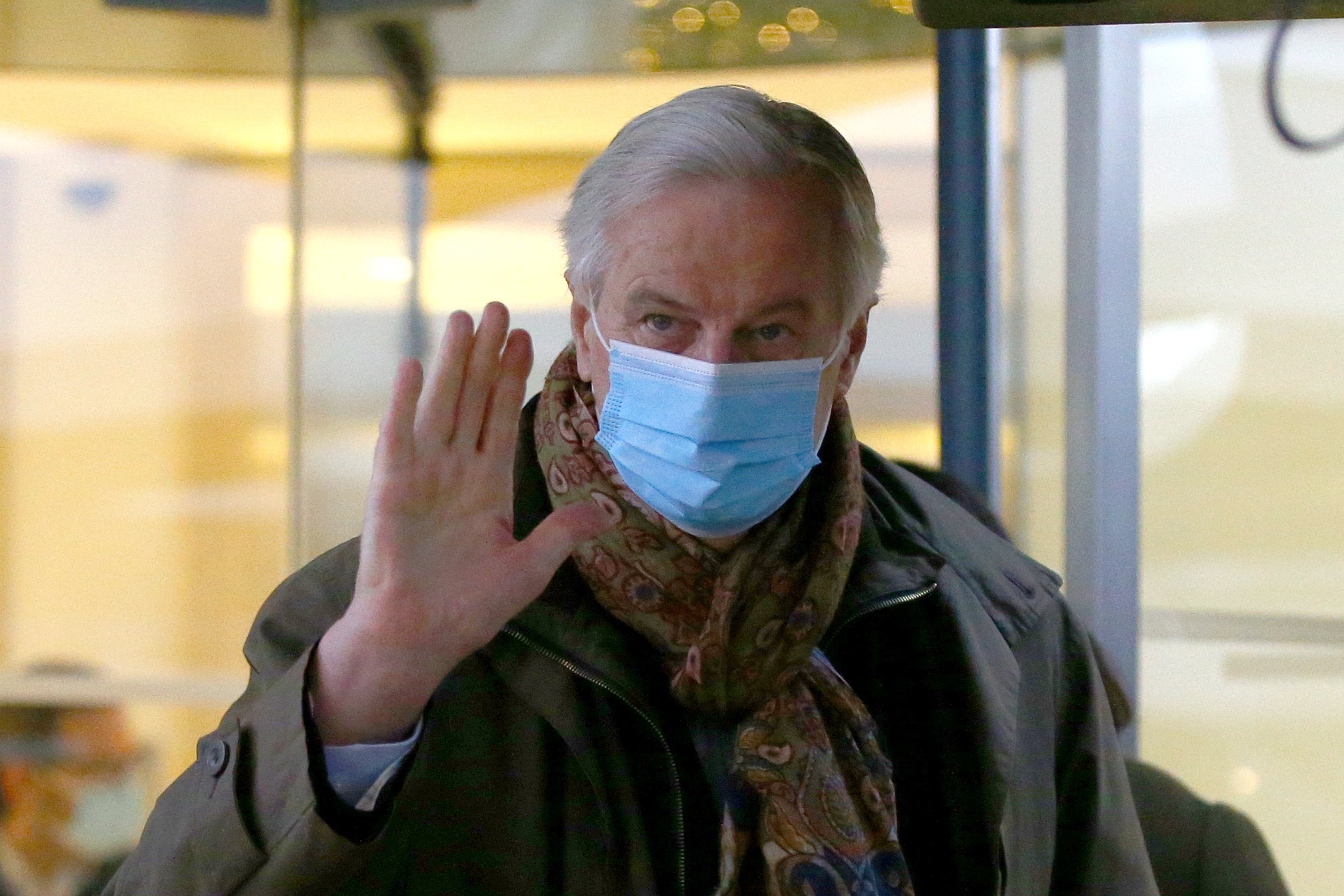Christmas final deadline to avoid no-deal as Michel Barnier says he’s done all he can to resolve deadlock
Fishing will now have to be resolved by Boris Johnson and Ursula von der Leyen directly

Christmas is emerging as the final deadline to avoid a no-deal Brexit, amid warnings from Brussels that a deal needs to be signed before the holiday to be in place by the the end of the transition.
Michel Barnier, the EU's chief negotiator, privately told MEPs on Tuesday night that he had done all he could to break the deadlock on fishing – the last big issue remaining.
An official present at the meeting with the European Parliament's UK coordination group said the chief negotiator had warned that fishing now had to be resolved directly by Boris Johnson and Ursula von der Leyen.
The pair of leaders are understood to have been talking directly over the phone since the start of the week in a move which one EU source described as "part and parcel" of negotiations.
Negotiating teams met for further talks in the European Commission's Brussels Berlaymont headquarters on Wednesday morning to iron out the last details on the so-called "level playing field" issue, where there has now been significant progress.
But with less than 48 hours to go until Christmas Day the two sides are far apart on fishing, albeit edging closer. The latest EU offer would have seen its access to UK waters frozen for a six year transition period, with a 25 per cent reduction in catch and access maintained to the UK's crucial "6-12 mile" coastal zone.
This was rejected by the UK side, which laid a counter-proposal of just a three year transition period, a much sharper 60 per cent reduction in catch, and no access to the crucial zone.
On the level playing field, a collection of relatively minor issues like binding rules for the energy sector, import rules for electric vehicles, and portfolio management are yet to be resolved.
But the two sides are now all but agreed on the central question of the "evolution clause" that would see the UK and EU update their standards in line with each other to avoid undercutting each other.
Mr Barnier told MEPs that if either side felt that standards on climate, environment, social provision, or state aid had not been respected by the other, they could take action under the agreement after a mandatory consultation period.
The agreed system would see arbitrage panel convened within 30 days, and only after this had ruled in its favour, the aggrieved party would be able to take "compensatory measures" like imposing retaliatory tariffs.
The system represents a compromise between the EU's and UK's opening positions: a compromise for the UK, which only wanted to be held to its standards at the point of leaving the single market, and a compromise for the EU which wanted to be able to impose retaliatory measures unilaterally and automatically.
Negotiators are now working to see if they can pull off a similar feat with fishing. But if they do not do it before Christmas day, lawyers working at the European Council have said they would almost certainly be unable to even provisionally apply the deal before 1 January.
The deadline for full ratification by the European Parliament passed last weekend, but officials had been hoping to use a quicker procedure to get a deal in place without a vote. But the extreme last-minute nature of any deal means now even this is in question.
Failure to provisionally ratify a deal in time, even if one is signed, would mean further disruption at Channel ports, which are already reeling in chaos from new coronavirus restrictions imposed on the French side to prevent the spread of a new Covid-19 variant identified in southern England. The extra no-deal disruption would continue until the deal was ratified, though frictionless trade will still permanently end under the weak trade arrangements sought by the UK.
Britain is set to leave the single market and customs union on 31 December, having left the EU politically earlier in the year. The economic damage of doing so is expected to be magnified significantly without a deal.
Subscribe to Independent Premium to bookmark this article
Want to bookmark your favourite articles and stories to read or reference later? Start your Independent Premium subscription today.

Join our commenting forum
Join thought-provoking conversations, follow other Independent readers and see their replies